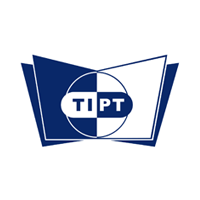 From fabrication to distribution, the ‘scale-up’ process helps pharmaceutical companies to meet consumer demand. A necessary component for company growth, the process typically increases manufacture from the laboratory to the pilot plant, and ultimately the intended production scale.
From fabrication to distribution, the ‘scale-up’ process helps pharmaceutical companies to meet consumer demand. A necessary component for company growth, the process typically increases manufacture from the laboratory to the pilot plant, and ultimately the intended production scale.
Throughout each phase, pharmaceutical expertise is required to ensure compliance, safety and product consistency. This expertise is now more important than ever, with emerging technologies and best practices presiding over manufacturing expansion.
Pharmaceutical technology grads can have an important hand in this process, leveraging their skills for the good of companies and their customers. Developing key lab skills and in-field experience, top pharmaceutical programs will prepare students to help companies scale up safely and effectively.
Are you interested in a pharmaceutical career? Keep reading to learn how pharmaceutical technology graduates can help companies meet crucial scale-up challenges.
Scale-Up Procedures Require Manufacturing Expertise
The scale-up process is best undertaken with clearly-defined parameters, production objectives and chemical routes. Setting these optimal conditions helps pharmaceutical companies establish consistency, and ensure that scaling up does not negatively affect the product that fueled greater demand in the first place.
Pharmaceutical manufacturing experts help oversee this process, with wide-ranging insight into everything from pharmaceutical ethics to the science of drug production. A leading pharmaceutical school can help prepare graduates for scale-up duties, training them with the latest technologies for granulation, compression, coating and capsulation. Learning to operate and maintain this equipment, students can identify defects and suitable materials – key considerations in the scaling-up process.

Safety and Compliance are Top Priorities
Naturally, safety is a crucial concern for pharmaceutical companies looking to increase manufacture. Proper scale-up procedures ensure a safe and consistent product, with careful attention to production techniques and dosage.
In addition to customer safety, the scale-up process also entails safety concerns in the laboratory. For instance, manufacturers might contend with a greater volume of potentially hazardous materials while scaling up production. A Pharmaceutical Manufacturing program can prepare students for these combined safety concerns, developing expertise with various dosage forms and the best practices for in-lab safety.
Scaling up is also subject to compliance measures that ensure quality throughout the pharmaceutical industry. Companies maintain their industry standing by adhering to Good Manufacturing Practices (GMP) – a crucial consideration when increasing production. In addition to pharmaceutical science and technologies, top manufacturing programs instill crucial knowledge of the laws and ethics binding drug production. With keen insight into GMP, graduates can help ensure that scale-up procedures are undertaken with the utmost compliance to industry norms.
Pharmaceutical School Develops Practical Scale-up Experience
Pharmaceutical manufacturing courses can also provide crucial experience in the field, where students develop expertise through hands-on training. For instance, exposing students to active pilot plants helps prepare them for immediate professional immersion. This hands-on experience also prepares graduates to oversee, maintain and troubleshoot crucial technical equipment for procedures like granulation and compounding. This can help future pharmaceutical manufacturers take on greater responsibilities as their companies expand manufacture.
In addition to technical expertise, this hands-on training develops ‘soft skills’ like teamwork – a crucial asset for the scaling-up process. Assembling key company personnel, scale-up procedures operate with close employee collaboration, from lab researchers to senior management. Effective pharmaceutical training cultivates these collaborative skills, preparing students to become valued members of expanding manufacturing chains.

Are you interested in helping pharmaceutical companies grow and meet customer needs?
Find out more about the pharmaceutical manufacturing courses at the Toronto Institute of Pharmaceutical Technology.
